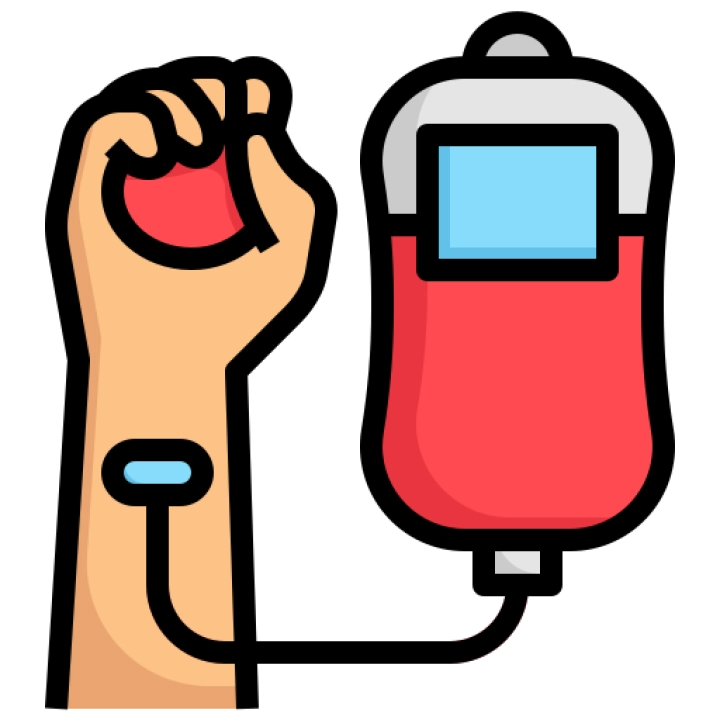College: Health Sciences
The Dialysis major focuses on the principles and practices of dialysis treatment for patients with kidney failure. Students develop skills in dialysis procedures, patient care, machine operation, and clinical management. Graduates are prepared to work as dialysis technicians, nurses, and clinical specialists in dialysis centers, hospitals, and healthcare facilities.
Learning Objectives:
- Understand the basics of dialysis and kidney replacement therapies.
- Develop skills in dialysis procedures, patient care, and machine operation.
- Learn techniques for managing dialysis treatments, monitoring patient vital signs, and ensuring safety.
- Explore principles of clinical management, quality assurance, and ethical practices in dialysis.
- Analyze and interpret dialysis data and patient health information.
- Develop critical thinking, problem-solving, and technical skills for effective dialysis practice.
Main Outline:
- Introduction to Dialysis
- Overview of key concepts, principles, and practices in dialysis.
- Basics of renal physiology, kidney failure, and dialysis treatments.
- Dialysis Procedures
- Principles of dialysis procedures, including hemodialysis, peritoneal dialysis, and continuous renal replacement therapy (CRRT).
- Techniques for performing dialysis procedures and managing patient care.
- Patient Care in Dialysis
- Principles of patient care in dialysis, including assessment, monitoring, and intervention.
- Techniques for providing comprehensive care to dialysis patients.
- Dialysis Machine Operation
- Principles of dialysis machine operation, including setup, maintenance, and troubleshooting.
- Techniques for operating and monitoring dialysis machines.
- Clinical Management in Dialysis
- Principles of clinical management in dialysis, including treatment planning, quality assurance, and patient education.
- Techniques for managing dialysis treatments and ensuring high-quality care.
- Ethical Practices and Patient Safety
- Principles of ethical practices and patient safety in dialysis, including informed consent, confidentiality, and infection control.
- Techniques for ensuring ethical and safe dialysis practices.
- Renal Physiology
- Principles of renal physiology, including kidney diseases, complications, and management.
- Techniques for understanding and managing renal physiology in dialysis patients.
- Practical/Applied Training
- Real-world experiences in dialysis environments, including hands-on training and practical projects in dialysis centers, hospitals, or healthcare facilities.
- Application of acquired skills in practical dialysis scenarios.
- Capstone Project in Dialysis
- A comprehensive project applying skills in dialysis procedures, patient care, or clinical management.
- Presentation of a polished dialysis project, case study, or research presentation.
Assessment Methods:
- Dialysis procedure projects, patient care plans, machine operation reports, clinical management plans, ethical practices and patient safety analyses, kidney disease studies, practical training reports, capstone projects, group projects, and presentations.
Recommended Textbooks:
- "Principles and Practices of Dialysis" by various authors.
- "Dialysis Procedures" by various authors.
- "Patient Care in Dialysis" by various authors.
- "Operation of Dialysis Machines" by various authors.
- "Clinical Management in Dialysis" by various authors.
- "Ethical Practices and Patient Safety" by various authors.
- "Kidney Diseases" by various authors.
Prerequisites:
Basic knowledge of anatomy, physiology, and an interest in healthcare and dialysis procedures.
Duration:
Typically two to four years to earn an associate or bachelor's degree, including coursework, internships, and capstone projects.
Certification:
Graduates may earn a degree or certification in dialysis and pursue further education or professional certifications, such as those offered by the National Nephrology Certification Organization (NNCO) or the Board of Nephrology Examiners Nursing and Technology (BONENT).
Target Audience:
Aspiring dialysis technicians, nurses, clinical specialists, and healthcare professionals seeking to work in dialysis centers, hospitals, and healthcare facilities. This major equips students with the technical, clinical, and patient care skills necessary to excel in dialysis treatment, supporting careers in diverse healthcare settings specializing in dialysis treatment.


















